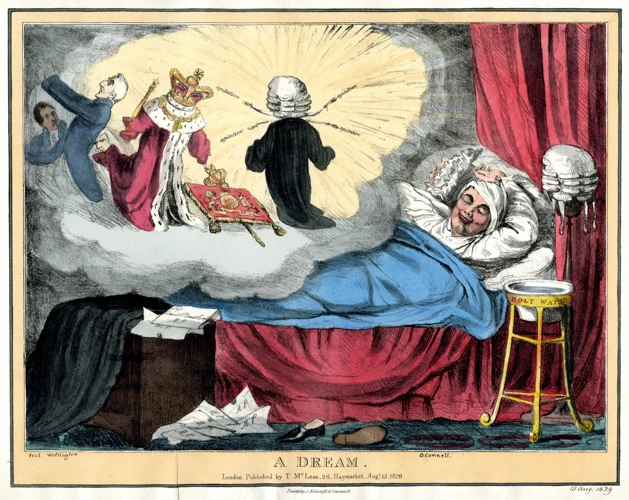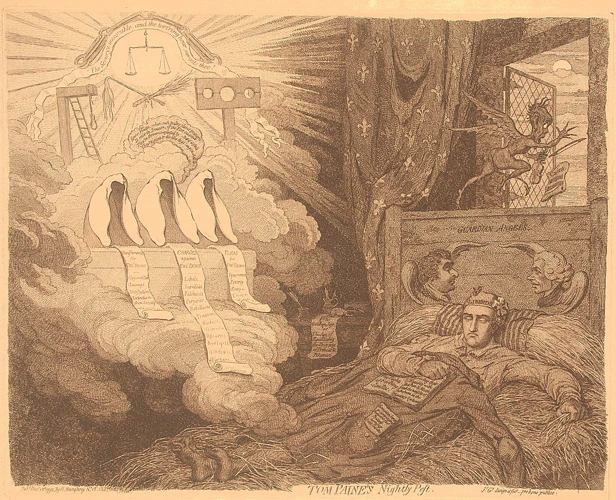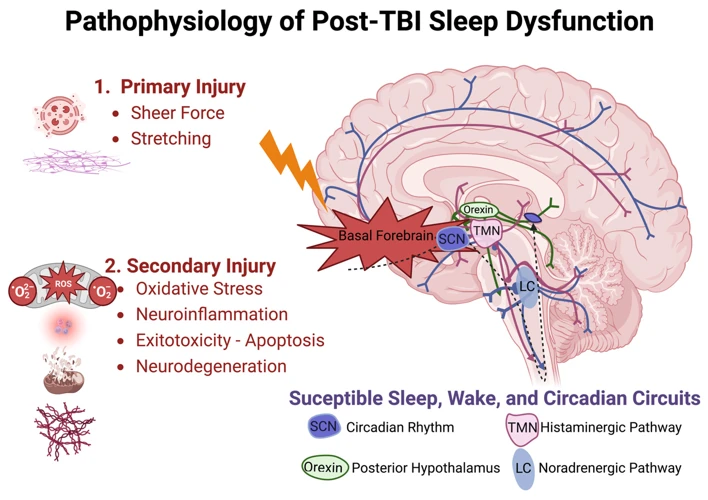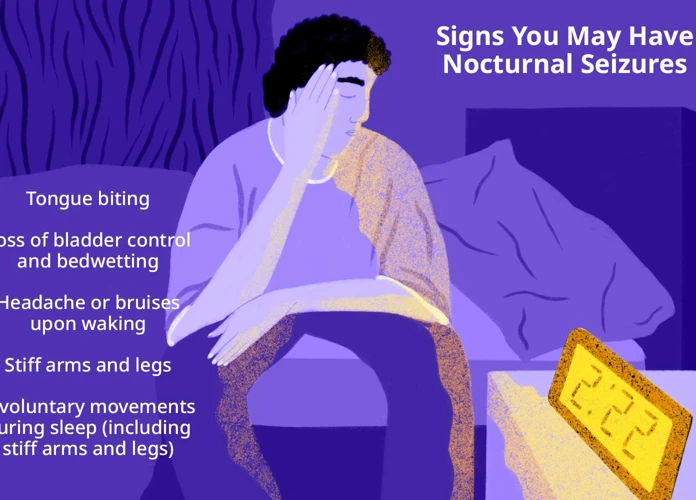Introduction: Unveiling the Dream’s Symbolism

Dreaming about someone having a seizure can be a perplexing and unsettling experience. Dreams have long been believed to hold symbolic meanings, providing insights into our subconscious thoughts and emotions. When it comes to interpreting dreams, understanding the symbolism can help us gain a deeper understanding of ourselves and the messages our minds may be trying to convey. In the case of dreaming about someone having a seizure, it is important to explore the various symbolic interpretations that may shed light on the meaning behind these dreams.
The symbolic interpretations of dreaming about seizures can vary depending on the individual and the specific circumstances of the dream. For some, it may represent a fear of losing control or a sense of powerlessness in certain aspects of their lives. For others, it could be an indication of repressed emotions or unresolved trauma. Understanding the personal context and emotional factors surrounding the dream can provide valuable insights into its meaning.
Psychological factors can greatly influence the symbolism and meaning of seizure dreams. Emotional factors, such as stress, anxiety, or fear, can manifest in dreams as seizures. These dreams may be a reflection of the dreamer’s emotional state and serve as a reminder to address and manage these emotions in waking life. Personal relationships can also play a role in seizure dreams, with the presence of a specific person during the seizure potentially representing the dreamer’s feelings towards that individual. Additionally, inner anxieties and fears can be projected onto the dream scenario, resulting in dreams about seizures.
In addition to psychological factors, there are other aspects to consider when interpreting seizure dreams. Medical conditions or concerns may influence the manifestation of seizure dreams, especially if the dreamer has personal experience or knowledge of seizures. These dreams can serve as a way for the mind to process and make sense of health-related worries or anxieties. Seizure dreams can also be symbolic representations of control. The dreamer may feel a lack of control or power in their waking life, and the seizure serves as a vivid metaphor for this feeling. Lastly, unresolved trauma or past experiences can resurface in dreams as seizures, symbolizing the need to address and work through these unresolved issues.
To fully understand the significance of dreaming about someone having a seizure, it is crucial to analyze the dream in its broader context. Considering the overall dream context, including other symbols and events that occur within the dream, can provide further clues about the dream’s meaning. Interactions with the dream character, such as the dreamer’s relationship and reactions towards the person having the seizure, can offer insights into their personal feelings and emotions. Additionally, the dreamer’s own emotions and reactions during the dream should be examined, as they can provide valuable information about the dream’s significance.
Dreaming about someone having a seizure can hold profound symbolism and meanings. These dreams often reflect emotional factors, personal relationships, and inner anxieties. Medical conditions, control issues, and unresolved trauma may also contribute to the interpretation of the dream. By analyzing the dream in its context and paying attention to personal emotions and reactions, one can gain a deeper understanding of the significance behind these dreams. Exploring the symbolic interpretations of seizure dreams can lead to personal growth and self-awareness.
Please, ask me for the next part.
The Symbolic Interpretations of Dreaming About Seizures

Dreaming about seizures can hold various symbolic interpretations, shedding light on the deeper meanings of these dreams. Understanding these interpretations can provide valuable insights into our subconscious thoughts and emotions. Here are some symbolic interpretations of dreaming about seizures:
1. Loss of Control: Seizures in dreams often symbolize a sense of losing control or powerlessness in certain aspects of life. The dream may indicate underlying fears or anxieties related to a lack of control in a particular situation.
2. Emotional Overwhelm: Seizures can be a representation of emotional overwhelm. The dream might suggest that the dreamer is experiencing intense emotions that they are struggling to manage or express in waking life.
3. Fear of Unknown: Seizures may also symbolize a fear of the unknown or unpredictable events. The dreamer may be apprehensive about uncertain outcomes or potential disruptions in their life.
4. Suppressed Emotions: Dreams about seizures can be a manifestation of suppressed or repressed emotions. The dream might be urging the dreamer to acknowledge and address these emotions that have been buried deep within.
5. Need for Attention: Seizure dreams might indicate a subconscious desire for attention or support. The dreamer may be craving validation or assistance from others in dealing with challenging situations.
6. Inner Transformation: Seizures can symbolize inner transformation or the need for personal growth. The dream may suggest that the dreamer is going through a period of significant change or transition.
7. Symbolic Release: Dreams about seizures can serve as a symbolic release of pent-up energy or tension. The dream may be a way for the subconscious mind to release stress or emotional build-up.
8. Health Concerns: In some cases, dreaming about seizures could be a reflection of health concerns or worries about personal well-being. It is essential to consider any underlying medical conditions or anxieties that could be influencing the dream.
While these symbolic interpretations can provide a starting point for understanding the meaning of seizure dreams, it is important to remember that personal experiences and emotions greatly influence dream symbolism. Each individual may have unique associations and interpretations based on their own context and experiences.
Please, ask me for the next part.
Psychological Factors Influencing Seizure Dreams

Psychological factors play a significant role in influencing seizure dreams. These dreams can be influenced by emotional factors, personal relationships, and inner anxieties and fears. Emotional factors such as stress, anxiety, or fear can manifest in dreams as seizures, reflecting the dreamer’s emotional state and the need to address and manage these emotions. Personal relationships can also impact seizure dreams, with the presence of a specific person during the seizure symbolizing the dreamer’s feelings towards that individual. Inner anxieties and fears can be projected onto the dream scenario, resulting in dreams about seizures. Exploring these psychological factors can provide insight into the underlying emotions and experiences influencing seizure dreams.
Please, ask me for the next part.
1. Emotionaler Factors
Emotional factors play a significant role in the symbolic interpretations of dreaming about seizures. These factors contribute to the overall meaning and significance of the dream. Here are some key emotional factors to consider when interpreting seizure dreams:
– Stress and Anxiety: Dreams about seizures can often be linked to high levels of stress and anxiety in waking life. The dreamer may be feeling overwhelmed by various responsibilities, pressures, or challenging situations.
– Fear and Uncertainty: Emotions such as fear and uncertainty can manifest as seizures in dreams. The dreamer may be grappling with deep-seated fears or anxieties about the future or specific aspects of their life.
– Emotional Overload: Seizure dreams may serve as an expression of emotional overload. The dreamer might be experiencing intense emotions such as anger, sadness, or frustration that are difficult to manage or process in waking life.
– Trauma and Past Experiences: Traumatic experiences or unresolved past events can also impact the emotional factors in seizure dreams. The dream may be a way for the subconscious mind to process and heal from these emotional wounds.
Understanding these emotional factors can provide insight into the dreamer’s emotional state and help unravel the symbolic meaning of the seizure dream. It is crucial to explore the specific emotions experienced in the dream and how they relate to the dreamer’s waking life.
Please, ask me for the next part.
2. Personal Relationships
Personal relationships can play a significant role in the symbolic interpretation of dreaming about seizures. The presence of a specific person during a seizure in the dream can hold deeper meanings related to the dreamer’s feelings and emotions towards that individual.
1. Relationship Dynamics: The person experiencing the seizure in the dream may represent someone with whom the dreamer has a complex or turbulent relationship. The dream could be highlighting unresolved issues or tensions that need to be addressed within that relationship.
2. Concern for Loved Ones: If the person having the seizure in the dream is someone close to the dreamer, such as a family member or friend, it may symbolize the dreamer’s concern or worry for that person’s well-being. The dream might reflect a desire to protect or support that individual.
3. Emotional Impact: The sight of someone having a seizure in a dream can evoke strong emotions within the dreamer. These emotions can provide valuable insights into the dreamer’s feelings towards the person and their relationship dynamics. It could be a representation of care, fear, empathy, or even resentment.
4. Symbolic Representation: The person experiencing the seizure could also symbolically represent certain qualities or characteristics that the dreamer associates with them. The seizure itself may reflect aspects of that person’s behavior or actions that the dreamer finds challenging or unsettling.
It is important to note that dream symbols and their associations with personal relationships can vary from person to person. The interpretation of these dreams should take into account the unique dynamics and emotions within the specific relationship being depicted in the dream.
Please, ask me for the next part.
3. Inner Anxieties and Fears
Inner anxieties and fears can play a significant role in the symbolic interpretation of dreams about seizures. These dreams may be a manifestation of deep-rooted concerns and worries. Here are some key points to consider when exploring the inner anxieties and fears associated with dreaming about seizures:
1. Anxiety and Stress: Seizure dreams can be a reflection of underlying anxiety and stress. The dreamer may be grappling with various stressors in their waking life, and the dream serves as an outlet for these anxieties.
2. Fear of Failure: Seizures in dreams can symbolize a fear of failure or not meeting personal expectations. The dreamer may be feeling pressure or doubts about their abilities and capabilities.
3. Uncertainty and Insecurity: Dreams about seizures may also indicate a fear of uncertain outcomes or a lack of security. The dreamer may be experiencing doubt or apprehension about future situations or relationships.
4. Control Issues: Inner anxieties and fears related to control can also influence the symbolism of seizure dreams. The dream may reflect a struggle to maintain control over certain aspects of life or a fear of losing control.
5. Trauma and Past Experiences: Seizure dreams may be triggered by unresolved trauma or past experiences. The dreamer may have witnessed or experienced seizures in the past, and these memories resurface in the dream as a way to process and cope with the emotions associated with the trauma.
It is essential to explore these inner anxieties and fears in the broader context of the dream. Paying attention to the specific details, interactions, and emotions within the dream can provide deeper insights into the meaning behind the seizures and the underlying fears they represent.
By addressing and confronting these inner anxieties and fears, the dreamer may find opportunities for personal growth and healing. Seeking support from friends, loved ones, or a professional counselor can also be beneficial in navigating and understanding the significance of these dreams.
Please, ask me for the next part.
Common Themes and Variations in Seizure Dreams

Dreams about seizures can manifest in various themes and variations, each carrying its own symbolic meaning. These common themes and variations in seizure dreams can offer further insights into the underlying emotions and concerns of the dreamer. Here are some examples:
1. Repeated Seizures: Dreams featuring recurring or multiple seizures may suggest a persistent sense of loss of control or overwhelm in the dreamer’s life. It could indicate an ongoing struggle or challenge that needs attention.
2. Witnessing a Loved One’s Seizure: Dreaming about someone close to you experiencing a seizure can symbolize deep concern or anxiety about their well-being. It may be an expression of the dreamer’s fear or worry for that person’s health.
3. Self-Inflicted Seizures: In some dreams, the dreamer themselves may be the one having the seizure. This variation can indicate a self-destructive tendency or a feeling of being overwhelmed by one’s own emotions or circumstances.
4. Seizures in Public: Dreams where seizures occur in public settings can signify a fear of judgment or scrutiny from others. The dreamer may have concerns about their image, reputation, or fear of being vulnerable in front of others.
5. Seizure Prevention or Control: Some seizure dreams may involve the dreamer attempting to prevent or control the seizure. This variation can reflect the dreamer’s desire for control or the need to manage challenging situations in their waking life.
6. Emotional Release: Dreams about seizures can also represent a cathartic release of pent-up emotions. The seizure may act as a symbolic outlet for emotional energy that needs to be expressed to achieve a sense of relief or resolution.
7. Seizures in Unusual Settings: Dreams featuring seizures in unexpected or unusual locations, such as underwater or in a fantasy realm, can add extra layers of symbolism. These settings may hold additional meaning related to the dreamer’s psyche and unconscious thoughts.
Remember that the interpretation of seizure dreams should take into account the individual’s personal experiences, emotions, and the specific context of the dream. Exploring these common themes and variations can provide a starting point for understanding the unique symbolism of each dream.
Please, ask me for the next part.
Other Factors to Consider

When interpreting dreams about seizures, it is essential to consider several other factors that may contribute to their meaning. These factors can provide additional insights into the significance of the dream. Here are some other factors to consider:
1. Medical Conditions or Concerns: If the dreamer has a personal history or ongoing concerns related to seizures or other medical conditions, it is important to take these into account when interpreting the dream. These dreams could potentially reflect underlying worries or anxieties about health, which may require further attention or exploration.
2. Symbolic Representation of Control: Seizure dreams can be symbolic representations of control issues or a perceived lack of control in the dreamer’s waking life. The seizure itself may serve as a metaphor for feelings of powerlessness or being overwhelmed in certain areas of life.
3. Unresolved Trauma or Past Experiences: Dreams, including those about seizures, can sometimes be influenced by unresolved trauma or past experiences. The dream may be a manifestation of the dreamer’s need to address and heal from these past events. Exploring any connections between the seizure dream and past experiences can provide valuable insights.
Considering these additional factors can help paint a more comprehensive picture of the dream’s meaning. By examining medical concerns, symbolic representations of control, and past experiences, individuals can gain a deeper understanding of the underlying messages their dream may be conveying.
Please, ask me for the next part.
1. Medical Conditions or Concerns
1. Medical Conditions or Concerns
Dreams about someone having a seizure can sometimes be influenced by medical conditions or health concerns. If the dreamer has personal experience or knowledge of seizures, the dream may be a reflection of their own worries or anxieties related to their health. It could be a subconscious way of processing these concerns or a reminder to address any ongoing medical issues.
In some cases, dreaming about seizures can also be linked to general concerns about well-being or the fear of falling ill. The dream may serve as a symbolic representation of the dreamer’s overall health and a call to pay attention to their physical or mental well-being. It’s important to consider any medical conditions or worries that the dreamer may have and how they could be influencing the dream’s symbolism.
Link to relevant article: What Does It Mean to Dream About Being Sick?
Please, ask me for the next part.
2. Symbolic Representation of Control
Dreaming about seizures can often serve as a symbolic representation of control or the lack thereof. The occurrence of seizures in dreams can signify a feeling of powerlessness or a struggle to maintain control in certain aspects of life. This symbolic representation may suggest that the dreamer is grappling with situations or circumstances that they perceive as beyond their control. It could also be an indication of an underlying fear of losing control or not having the ability to influence outcomes.
The dreamer may be facing challenges or stressors that make them feel overwhelmed and helpless. This dream symbol may be a manifestation of their subconscious mind processing these emotions and concerns. It can serve as a gentle reminder for the dreamer to evaluate their current circumstances and find ways to regain a sense of control or take proactive measures to manage the situations causing distress.
It’s important to note that the symbolic representation of control in seizure dreams can vary for each individual. Personal experiences, beliefs, and emotions will greatly influence the interpretation. Exploring the dreamer’s own thoughts and feelings surrounding control in waking life can provide deeper insights into the specific meaning of this symbolic representation within the dream.
Please, ask me for the next part.
3. Unresolved Trauma or Past Experiences
Dreaming about seizures can sometimes be linked to unresolved trauma or past experiences. These dreams may serve as a way for the subconscious mind to process and make sense of these unresolved issues. Here are some points to consider when exploring the connection between seizure dreams and unresolved trauma or past experiences:
1. Traumatic Events: Seizure dreams can be related to traumatic events that the dreamer has experienced in the past. These events may have left a deep emotional impact, and the dreams could be a manifestation of the ongoing effects of that trauma.
2. Emotional Triggers: Certain triggers or reminders in the dreamer’s life may bring forth memories of past trauma, resulting in seizure dreams. These triggers could be external factors, such as a specific location or object, or internal factors, such as certain emotions or thoughts.
3. Unresolved Issues: Dreams about seizures may indicate that there are unresolved issues from the past that need attention. It could be a signal that the dreamer has unfinished business or unresolved emotions related to a particular event or experience.
4. Seeking Healing and Closure: Seizure dreams may be an invitation for the dreamer to seek healing and closure regarding past trauma. The dreamer may need to address and work through these unresolved experiences to find a sense of peace and well-being.
It is essential to approach the interpretation of seizure dreams related to trauma or past experiences with sensitivity and understanding. If the dreamer feels overwhelmed or unable to process these emotions on their own, seeking support from a qualified therapist or counselor can be beneficial in the healing process.
Please, ask me for the next part.
Interpreting the Dream in Context
Interpreting the dream about someone having a seizure requires careful consideration of the dream’s context. Analyzing the overall dream context involves examining the various elements, symbols, and events surrounding the seizure. It is important to take note of other significant symbols and actions within the dream to get a comprehensive understanding of its meaning. Additionally, paying attention to the interactions with the dream character who is experiencing the seizure can provide valuable insights. What is the relationship with that person like? How does the dreamer feel about them? These factors can contribute to understanding the personal emotions and reactions within the dream. By contextualizing the seizure dream, individuals can unravel the hidden meaning and messages contained within their subconscious.
1. Overall Dream Context
When interpreting dreams about seizures, it is crucial to consider the overall dream context. The context in which the seizure occurs can provide valuable clues about its symbolic meaning. Here are some aspects of the overall dream context to consider:
1. Surrounding Environment: Take note of the setting and environment in which the seizure occurs. Are you in a familiar place or somewhere unfamiliar? Is the environment calm or chaotic? The setting can offer insights into the specific circumstances or situations that may be contributing to the seizure symbolism.
2. Dream Characters: Pay attention to the other characters present in the dream. Are they familiar or unknown individuals? How do you interact with them during the seizure? The presence and actions of other characters can provide insights into the dreamer’s personal relationships, interactions, or emotions related to those individuals.
3. Other Dream Symbols: Analyze the other symbols and events that occur within the dream. Do you notice any recurring themes or symbols? Do these symbols connect to the seizure in any way? Exploring the broader symbolism of the dream can help unravel deeper meanings and connections to the seizure imagery.
By considering the overall dream context, including the surrounding environment, dream characters, and other symbols, a clearer understanding of the seizure dream’s significance can be gained. Remember that dream interpretation is subjective, and individual experiences and associations can greatly influence the interpretation.
Please, ask me for the next part.
2. Interactions with the Dream Character
Interactions with the dream character in a dream about someone having a seizure can provide valuable insights into the dreamer’s personal feelings and emotions. The way the dreamer interacts with the person experiencing the seizure can offer clues about their relationships or dynamics in waking life. Here are some possible scenarios and interpretations:
1. Comfort and Support: If the dreamer offers comfort and support to the person having the seizure, it may indicate a caring and nurturing nature. The dreamer may be a compassionate individual who is willing to provide assistance and emotional support to others in difficult times. This interaction could signify the dreamer’s desire to help and be there for those they care about.
2. Helplessness or Fear: On the other hand, if the dreamer feels helpless or afraid during the interaction, it could suggest feelings of powerlessness or anxiety in waking life. The dreamer may be experiencing a situation where they are unable to provide the help or support they desire. This interaction might reflect the dreamer’s fears or insecurities in dealing with challenging circumstances.
3. Distance or Apathy: In some instances, the dreamer may feel distant or apathetic towards the person having the seizure. This interaction could symbolize emotional detachment or a lack of connection in a particular relationship. It might indicate that the dreamer is struggling to empathize or connect with someone in their waking life.
4. Seeking Medical Assistance: If the dreamer calls for medical assistance or seeks help during the seizure, it may suggest a recognition of the need for outside intervention or professional help in a challenging situation. This interaction could reflect the dreamer’s acknowledgment that they cannot handle everything on their own and require external support.
5. Ignoring the Seizure: Alternatively, the dreamer might ignore or avoid the seizure altogether, which can signify a tendency to avoid or deny issues in waking life. This interaction may indicate the dreamer’s resistance to confronting and addressing difficult emotions or situations.
It is important to consider the specific dynamics and emotions involved in the interaction between the dreamer and the person having the seizure. The interpretation of these interactions should take into account the dreamer’s own experiences, emotions, and relationships in order to gain a deeper understanding of their personal context.
Please, ask me for the next part.
3. Personal Emotions and Reactions
When interpreting dreams about seizures, it is crucial to consider the dreamer’s personal emotions and reactions within the dream. These emotional responses provide valuable insight and help unravel the dream’s deeper meaning. Here are a few factors to consider:
1. Fear and Anxiety: Take note of the dreamer’s feelings of fear or anxiety during the seizure dream. These emotions may indicate underlying concerns or worries in waking life. Pay attention to specific triggers or events in the dream that may be contributing to these emotions.
2. Confusion and Helplessness: If the dreamer feels confused or helpless during the seizure, it could symbolize a broader sense of confusion or powerlessness in their waking life. The dreamer may be grappling with difficult decisions or feeling overwhelmed by certain situations.
3. Relief or Empathy: While dreams about seizures can be distressing, the dreamer’s reaction to the seizure can provide important clues. If the dreamer feels a sense of relief or empathy towards the person experiencing the seizure, it may indicate a desire to understand and support others who are going through challenging times.
4. Guilt or Self-Blame: In some cases, the dreamer may experience guilt or self-blame in relation to the seizure. These emotions could be reflective of the dreamer’s internal struggles or feelings of responsibility for the well-being of others.
5. Curiosity and Reflection: Dreams about seizures may evoke curiosity or the urge to reflect upon their significance. If the dreamer finds themselves pondering the dream and seeking meaning, it suggests a willingness to explore their subconscious thoughts and emotions.
Examining personal emotions and reactions in seizure dreams helps uncover the dreamer’s unique interpretation of the dream. Dreams are highly subjective experiences, and understanding the individual’s emotional responses provides crucial insights into their perceptions, concerns, and aspirations.
Please, ask me for the next part.
Conclusion: Understanding the Significance of Seizure Dreams
Understanding the significance of seizure dreams can provide valuable insights into our subconscious thoughts, emotions, and personal experiences. These dreams often hold symbolic interpretations that vary from person to person. The symbolic interpretations of seizure dreams can include a loss of control, emotional overwhelm, fear of the unknown, suppressed emotions, and the need for attention or support. They may also represent inner transformation, serve as a symbolic release, or reflect health concerns.
To fully comprehend the meaning of seizure dreams, it is essential to consider the individual’s specific context, emotions, and personal associations with the dream symbols. Exploring the overall dream context, interactions with dream characters, and personal reactions can provide further clues to understanding the dream’s significance. Reflecting on one’s own experiences, traumas, and unresolved issues can help in interpreting the dream’s message.
While seizure dreams may seem unsettling, they offer an opportunity for introspection and self-discovery. By delving into the symbolism and reflecting on one’s own inner thoughts and emotions, seizure dreams can provide a pathway to personal growth, healing, and self-awareness.
It is important to remember that dreams are highly subjective and can have multiple interpretations. If you find yourself frequently dreaming about seizures or have concerns about your health, it may be beneficial to consult with a healthcare professional to address any underlying medical conditions or anxieties.
Understanding the significance of seizure dreams can contribute to a deeper understanding of oneself and can potentially guide personal development and well-being.
To learn more about dream symbolism, you may also be interested in exploring what it means to dream about being in a hospital bed or what it means when you dream about someone getting cancer.
Please, let me know if there is anything else I can assist you with.
Frequently Asked Questions
1. Can dreaming about someone having a seizure predict an actual seizure?
No, dreaming about someone having a seizure does not have predictive abilities. Dreams are symbolic representations of our thoughts and emotions rather than literal predictions of future events.
2. What does it mean if I dream about having a seizure myself?
Dreaming about having a seizure could symbolize a feeling of helplessness or a sense of vulnerability in your waking life. It may indicate a need for support or a desire to regain control over certain aspects of your life.
3. Are seizure dreams related to epilepsy or other medical conditions?
Seizure dreams can be influenced by personal experiences or concerns related to epilepsy or other medical conditions. It is important to consider any underlying health issues or worries that may be influencing the dream.
4. Can seizure dreams be triggered by stress or anxiety?
Yes, stress and anxiety can significantly influence dream content, including seizure dreams. Emotional factors and personal anxieties often manifest in dreams, and seizures can be a symbolic representation of these feelings.
5. What if I dream about someone close to me having a seizure?
Dreaming about someone close to you having a seizure can be a reflection of your emotions and concerns related to that individual. It may symbolize worry or a desire to protect and support them during challenging times.
6. Should I be concerned if I frequently dream about seizures?
Recurring themes in dreams, such as seizures, may indicate unresolved issues or underlying emotions that need attention. If these dreams cause distress or significantly impact your well-being, it may be helpful to explore them further with a therapist or dream interpreter.
7. How can I interpret the meaning of my seizure dreams?
To interpret the meaning of your seizure dreams, consider the personal context, emotional factors, and other symbols present in the dream. Reflect on the feelings and reactions you experienced in the dream as well as in your waking life to gain insights into their significance.
8. Can seizure dreams be a sign of repressed trauma?
Seizure dreams can potentially be a manifestation of repressed trauma or unresolved past experiences. The mind may be using the symbolism of seizures to bring attention to the need for healing and addressing these underlying emotional wounds.
9. Are seizure dreams always negative or worrisome?
Seizure dreams can have various meanings and interpretations. While they may often evoke negative emotions, they can also signify personal growth, transformation, or the release of pent-up energy or tension in some instances.
10. Can seizure dreams be influenced by medications or treatments?
Certain medications or treatments used to manage seizures may influence the content and frequency of seizure dreams. It’s important to consult with a healthcare professional to understand possible connections between your medication and your dream experiences.






